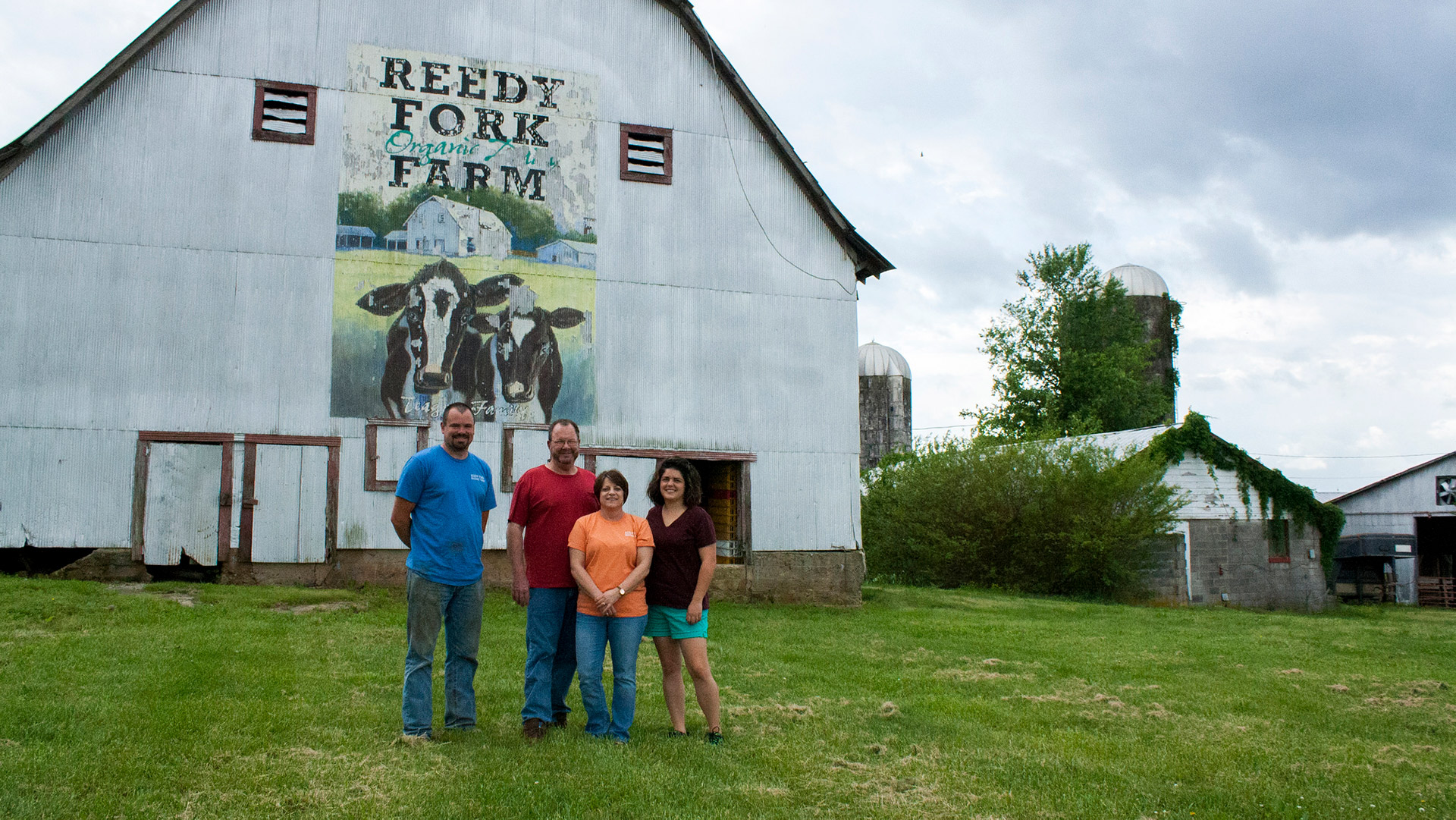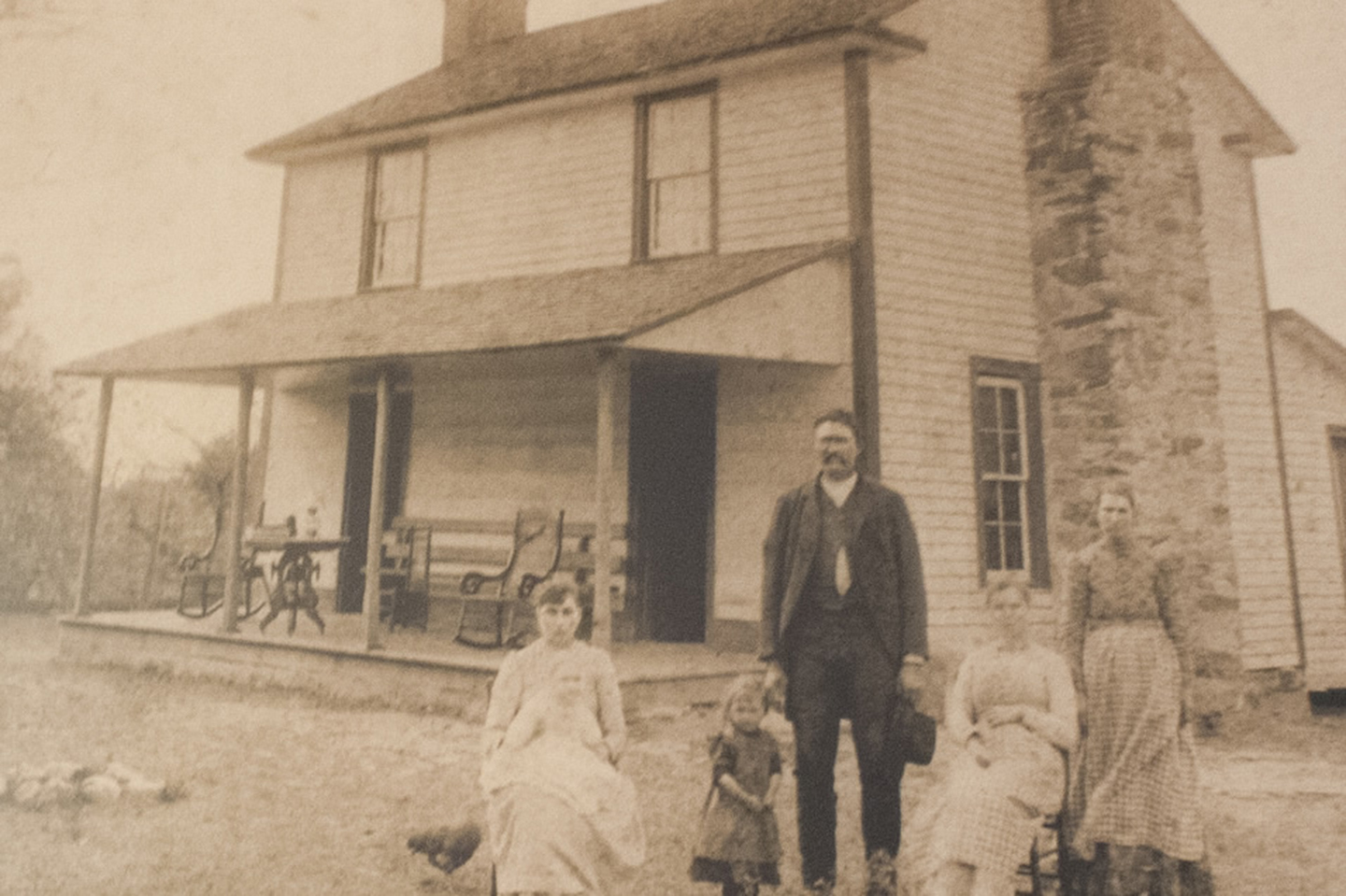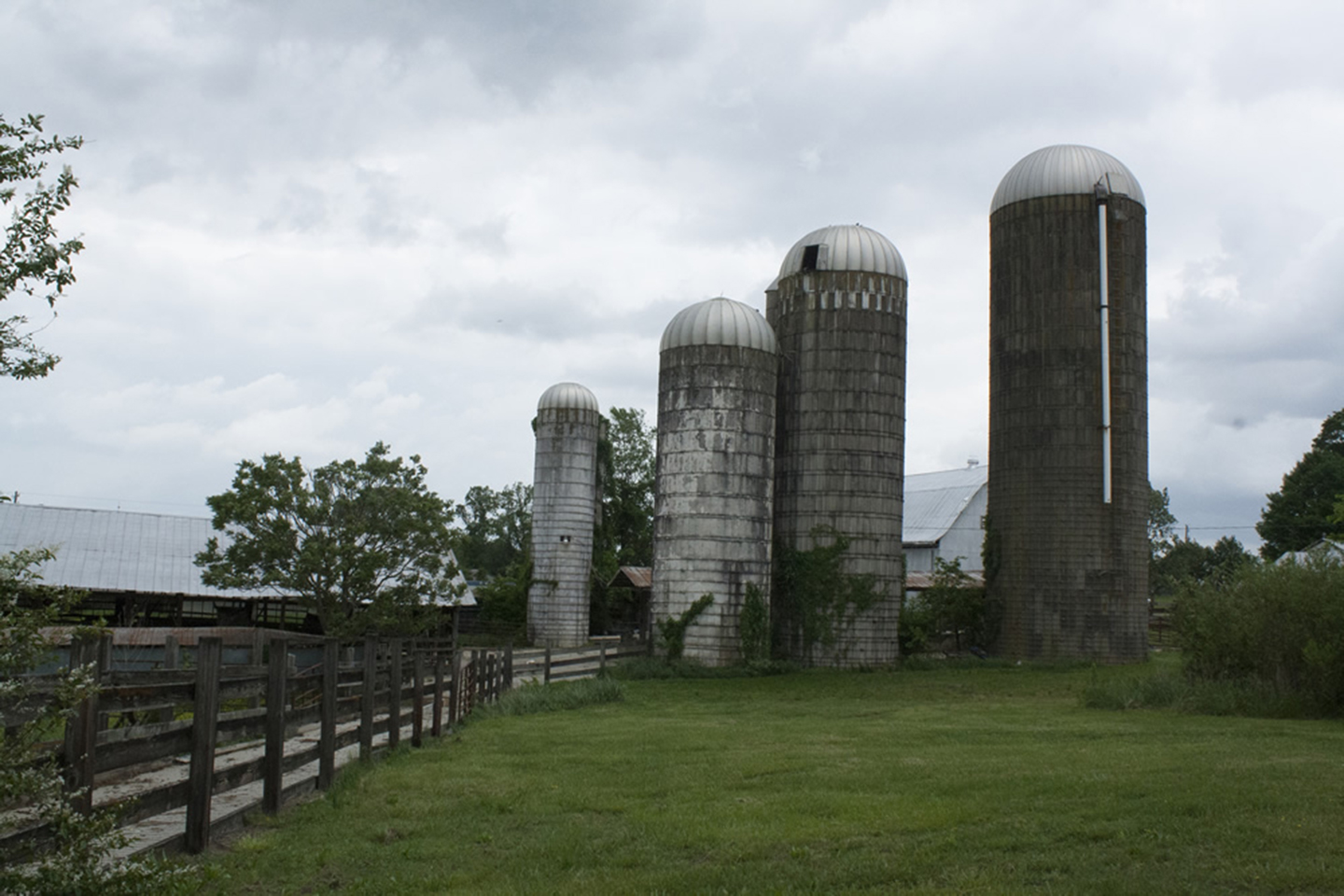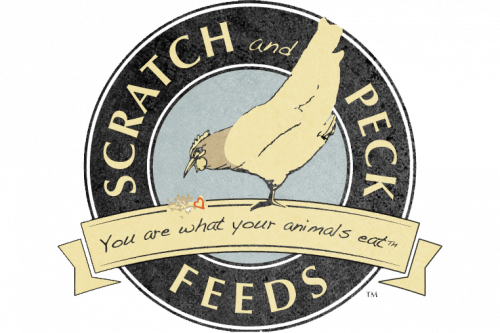For most people, it’s rare to live in a 125-year-old house. It’s even less common that your great-great-great-grandparents built it.
At Reedy Fork Farm, though, the Teague family goes way back. Cracks between floorboards hold generations of farm dust. Photos recount Teague family history and show the North Carolina landscape’s familiar quirks over the years — an oddly angled tree, a hillside, a fence. From the well-worn footpaths to the primordial frog croaking in a nearby stream, everything flows with ancestral connections. It’s not just a farm. It’s home.
But like most farms, Reedy Fork, in Elon, N.C., hasn’t been without problems. In 2006, milk prices no longer added up for the farm business. At stake was the end of five generations of hard work, love and tradition.
“I didn’t want to go out of farming, ” said George Teague. “My whole life has been here on the farm; I wasn’t ready to give it up.”

Cherry and Hayley, George’s wife and daughter, suggested a transition to organic. Reluctant but desperate, he traveled over 1,000 miles to Pennsylvania and Maryland, learning about organic production and meeting with Organic Valley, a farmer-owned dairy cooperative. “When you get used to using herbicides, pesticides and all that kind of stuff, you think you cannot do without them,” said George.
The farm had two choices: give organic a shot or close down. It was a simple decision.
Today, Reedy Fork Farm is a healthy, diverse business. The longstanding milking operation, part of the Organic Valley cooperative, comprises around 100 cows. It is accompanied by a feed mill and 1,500 pasture-managed, egg-laying chickens — all certified organic — that add new chapters to the farm’s storied history.

“A lot of things that we do are harder, yet, it just works a lot better for us,” said George. You can almost hear his parents and grandparents and great-grandparents in his calm, deep voice. “We have a purpose.”
George claims he’s learned more in the last 10 years about farming and soil than he knew before going organic. “I’ve changed mindsets,” he said. “Now, I am focused on knowing why and looking at how the bigger picture works together.”
The farm’s relationship with Oregon Tilth is important. For a family that values agricultural history and knowledge, being a member of the far-off and longtime organic organization is a no-brainer.

“Oregon Tilth has been very good to work with, and we see how people and customers really respect the organization, ” said George. “Being a member means we’re connected with other good people. We’re all creating and sharing our legacies together.”

























